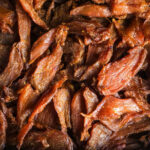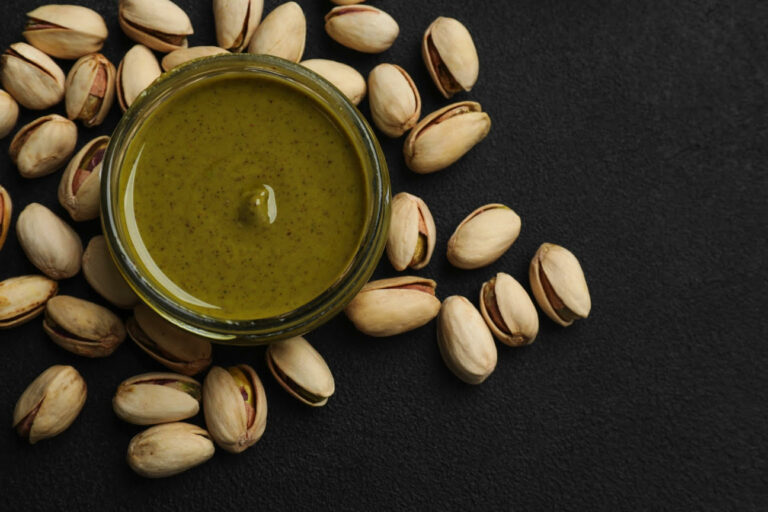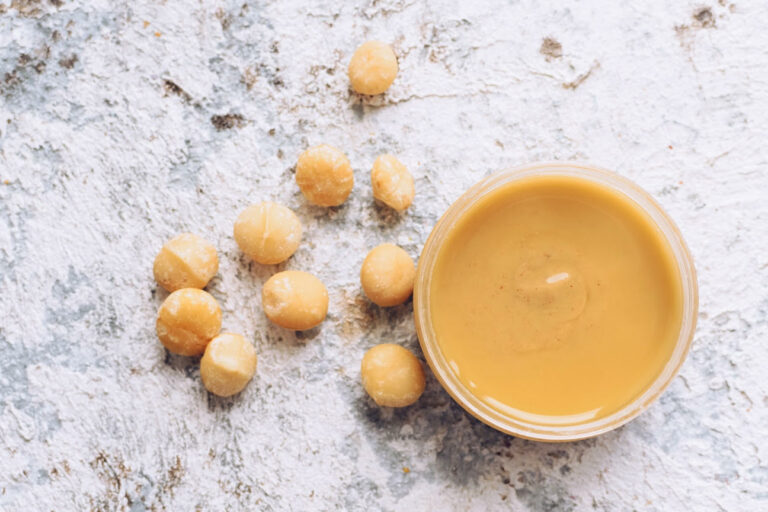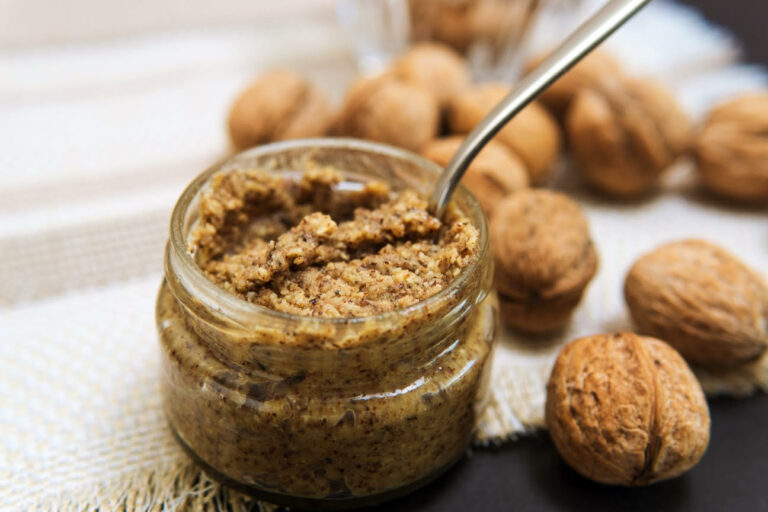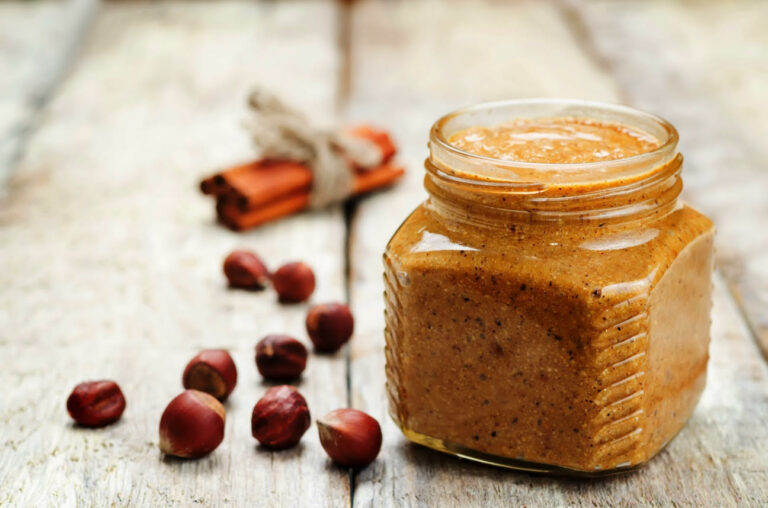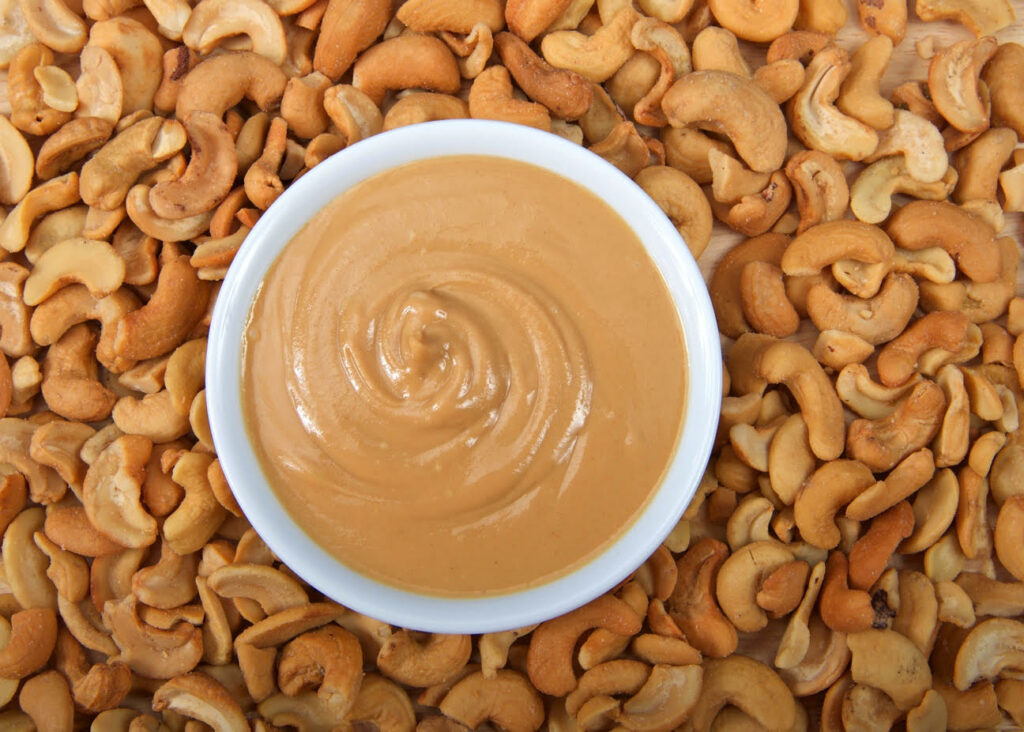
In the realm of nut spreads, the spotlight often shines brightly on almond and peanut butter. But today, we’re here to celebrate the unsung hero of the nut butter world—cashew butter. With its mild, creamy texture and versatile flavor profile, cashew butter deserves its moment in the culinary limelight. In this article, we’ll delve deep into the world of cashew butter, exploring its origins, nutritional benefits, culinary uses, and even some exciting DIY recipes.
Origin
Cashew butter starts with a humble nut – the cashew. Originating from tropical regions like Brazil, the cashew tree bears the curious gift of producing both nuts and fruit, known as cashew apples. It’s worth noting that the cashew nut isn’t a true nut but rather a seed enclosed in a hard shell attached to the cashew apple. The fascinating culinary journey of cashews begins with careful processing to extract these precious seeds.
Nutritional Powerhouse
Cashew butter may be rich and indulgent, but it also boasts a surprising array of health benefits. It’s a valuable source of essential nutrients and, with its naturally creamy texture, it can serve as a dairy-free alternative to traditional spreads. Here the many ways cashew butter can contribute to better health.
- Heart Health: Rich in monounsaturated fats, it can help lower LDL (bad) cholesterol levels, reducing the risk of heart disease.
- Weight Management: Healthy fats and protein can help promote satiety and prevent overeating, aiding in weight management.
- Nutrient Density: It provides essential nutrients like magnesium, phosphorus, and copper, which support overall health and well-being.
- Bone Health: It contains minerals like magnesium and phosphorus that are crucial for bone health and density.
- Digestive Health: It provides dietary fiber, aiding in digestion and supporting a healthy gut.
- Energy Boost: The combination of healthy fats, protein, and carbohydrates can provide a sustained energy boost throughout the day.
- Muscle Repair and Growth: The protein content is valuable for muscle repair and growth, making it a suitable option for athletes and active individuals. On average, a 2-tablespoon (32-gram) serving of natural, unsweetened cashew butter typically contains around 4-5 grams of protein.
- Antioxidant Properties: Cashews contain antioxidants like vitamin E and selenium, which help combat oxidative stress and protect cells from damage.
- Lower Risk of Anemia: Cashews are a good source of copper, which is essential for the absorption of iron from food, helping to prevent anemia.
- Supports Immune Function: The vitamins and minerals, such as zinc and vitamin K, contribute to a healthy immune system.
- Regulates Blood Sugar: Protein and healthy fats can help stabilize blood sugar levels, reducing the risk of spikes and crashes.
- Skin Health: It contains antioxidants and healthy fats that can contribute to healthy skin by reducing inflammation and promoting hydration.
- Mood Enhancement: Cashews contain tryptophan, an amino acid that plays a role in serotonin production, potentially helping to improve mood and reduce symptoms of depression.
Incorporating cashew butter into a balanced diet can provide these advantages without excessive calorie intake. Choose unsweetened and minimally processed varieties to maximize the health benefits of cashew butter.
Why opt for cashew butter?
- Creamy Texture: Cashew butter has a naturally creamy texture that many find appealing, making it a smoother spread compared to almond or peanut butter.
- Mild Flavor: It has a mild, slightly sweet flavor that is less overpowering than the distinct flavors of almond or peanut butter. This neutrality can be versatile for various culinary applications.
- Lower Saturated Fat: it generally contains lower levels of saturated fat compared to peanut butter, which can be beneficial for heart health.
- Heart-Healthy Fats: Like almond butter, it is rich in heart-healthy monounsaturated fats, which may help lower bad cholesterol levels and reduce the risk of heart disease.
- Nutrient Profile: It is a good source of essential nutrients like magnesium, phosphorus, and copper, which support overall health and well-being.
- Smoothies and Sauces: The creamy consistency makes it an ideal addition to smoothies, salad dressings, and sauces, providing a silky texture without the need for dairy.
- Savory Dishes: Cashew butter’s mild flavor makes it a versatile ingredient in savory dishes like curries and stir-fries, where it can add richness and depth to sauces.
- Lower Allergenicity: For individuals with nut allergies, cashews tend to be less allergenic compared to peanuts or almonds, making cashew butter a safer choice.
- Vegan and Dairy-Free: It’s a popular choice for those following vegan or dairy-free diets, as it can be used as a dairy substitute in recipes and offers a creamy consistency.
- Variety in Nutrients: By incorporating a variety of nut butters into your diet, such as cashew, almond, and peanut butter, you can benefit from a broader range of nutrients and flavors.
How to use cashew butter
Cashew butter’s adaptability in the kitchen knows no bounds. Its mild, slightly sweet flavor profile makes it a versatile ingredient in both savory and sweet dishes. Here are some delicious ideas:
- Spread It: A classic way to enjoy it is to spread it on toast, bagels, or rice cakes. Its creaminess pairs wonderfully with fruity jams, honey, or even a sprinkle of sea salt for a gourmet twist.
- Dip It: Create a delectable dip by blending it with Greek yogurt, lemon juice, and a dash of garlic. It’s an excellent accompaniment for vegetable sticks or pita bread.
- Blend It: Add a spoonful to your morning smoothie for an extra creamy texture and a dose of protein.
- Cook With It: Cashew butter can be used in cooking, especially in Thai and Indian cuisine. It’s a key ingredient in dishes like chicken satay and creamy curries, lending a velvety richness to the sauce.
- Bake It: Incorporate it into cookie dough, brownie batter, or muffin mix for an irresistible nutty flavor.
How to make cashew butter
Crafting your cashew butter at home is surprisingly easy. Here’s a simple recipe:
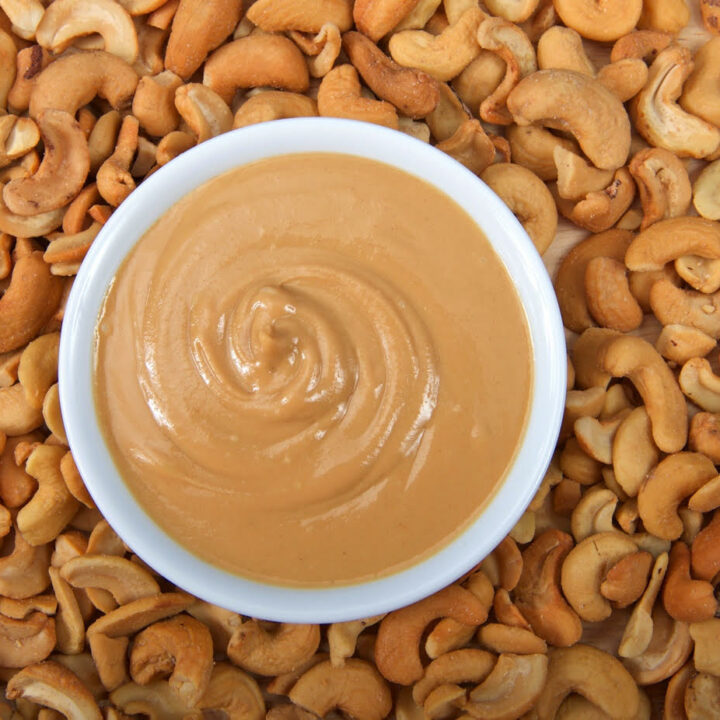
cashew butter
Ingredients
- 2 cups of raw cashews
- 2 tablespoons of honey or maple syrup (optional)
- 1/2 teaspoon of salt (or to taste)
Instructions
- Roast the cashews in the oven at 350°F (175°C) for 10-12 minutes until lightly golden.
- Allow the cashews to cool slightly, then transfer them to a food processor.
- Blend the cashews for about 10 minutes, scraping down the sides as needed, until you achieve a creamy, smooth consistency.
- Add honey or maple syrup and salt (to taste), if desired.
- Store your homemade cashew butter in an airtight container in the refrigerator for up to two weeks.
Recommended Products
Glutto earns a tiny commission from qualifying Amazon purchases.
Did you make this recipe?
Please leave a comment on the blog or share a photo on Instagram
Cashew butter, often overlooked in favor of its more famous nut butter cousins, brings a delightful mix of flavor, nutrition, and versatility to the table. Whether you’re a health-conscious foodie or a culinary adventurer, cashew butter deserves a cherished place in your pantry.







